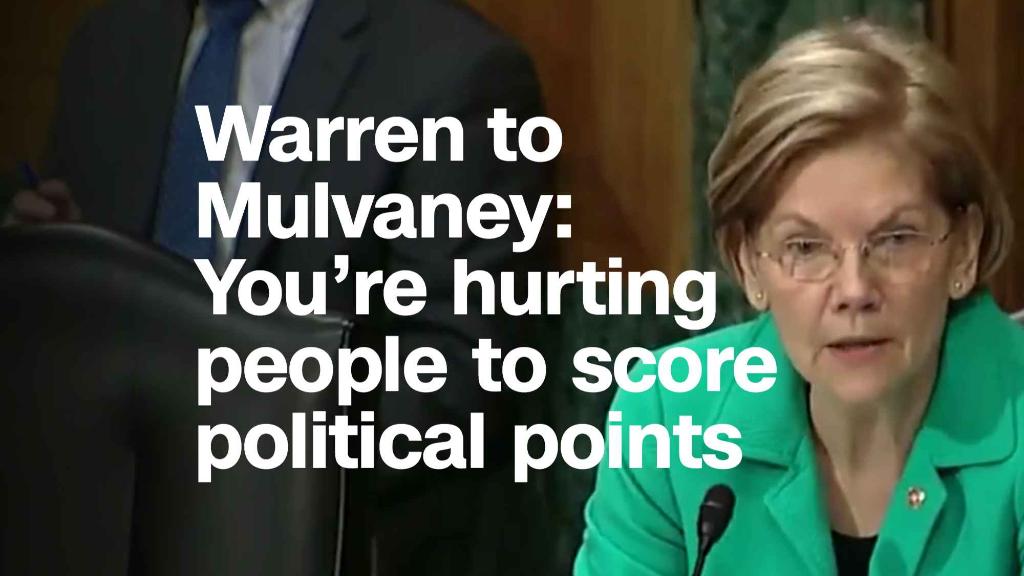
Congress just moved a step closer to gutting an Obama-era safeguard against discriminatory auto lending.
The Senate voted 51 to 47 on Wednesday in favor of repealing regulations aimed at protecting minority car buyers from being charged higher interest rates.
Overturning the rule still requires approval by the House and President Trump.
Republicans championed the repeal vote as an effort to unburden the auto industry from runaway regulations that have hurt borrowers.
They argue that the Consumer Financial Protection Bureau overstepped its legal authority in 2013 by issuing auto lending "guidance" without going through the normal rule-making process.
Senate Majority Leader Mitch McConnell slammed the auto-lending rule on Tuesday as a "brazen attempt" by the CFPB to "interfere in the auto industry."
The auto dealer industry applauded the Senate vote to repeal what it called "flawed" guidance from the CFPB and urged the House to follow suit.
Peter Welch, CEO of the National Automobile Dealers Association, said in a statement that the repeal is a "measured response" and won't change existing fair-lending laws.
"Congress must reassert its role in policymaking and provide some stability to the auto-lending marketplace," Republican Senator Jerry Moran of Kansas said on the Senate floor.
Related: Congress could give bank shareholders a $53 billion gift
However, there is little evidence that the auto industry has been hurt by the regulation. And progressives warn that repeal would hurt minority car buyers.
"They may try to dress it up with political spin but today the Senate endorsed discrimination," Karl Frisch, executive director of consumer watchdog group Allied Progress, said in a statement.
The 2013 CFPB guidance warned auto lenders to adhere to fair-lending laws that prohibit discrimination on the basis of race, color, religion, gender or other classes.
The National Consumer Law Center, a nonprofit consumer group, found "widespread racial disparities, unrelated to credit risks" in the pricing of car loans between the late 1990s and the early 2000s nationwide.
Stuart Rossman, director of litigation at the National Consumer Law Center, called the repeal vote "outrageous" because the auto lending market "unfortunately has a demonstrated history of charging people of color more for their loans."
As recently as 2015, the Justice Department and the CFPB accused Ally Financial (ALLY)of charging higher interest rates to 235,000 car loan borrowers who were Hispanic, African-American or Asian/Pacific Islander. Ally paid $98 million to settle the case and said it didn't believe its dealer network was deliberately discriminating.
"Let's be clear. Discrimination in auto lending is alive and well," Democratic Senator Elizabeth Warren said on Tuesday, voicing her opposition to the repeal.
Auto dealers have enormous influence in Congress thanks to hefty contributions. Moran, who introduced the repeal resolution in the Senate, received more than $225,000 in campaign contributions from the auto industry during his career in Congress, according to OpenSecrets.org.
Moran spearheaded the effort to use the Congressional Review Act to disapprove of the CFPB regulation.
The CFPB did not respond to a request for comment on the Senate vote.
House Republicans signaled plans to quickly take up the repeal effort.
"I applaud my colleagues in the Senate for standing up for the rule of law, and I look forward to finally repealing this harmful and flawed bulletin very soon," Jeb Hensarling, the Republican chairman of the House Financial Services Committee, said in a statement.
There is little evidence the auto industry is hurting right now, nor that access to credit has been cut off. Auto sales are at near-record highs. Americans have increased their auto debt by 54% since the CFPB guidance was issued in early 2013, according to the New York Federal Reserve.
— CNN's Ted Barrett contributed to this report.
